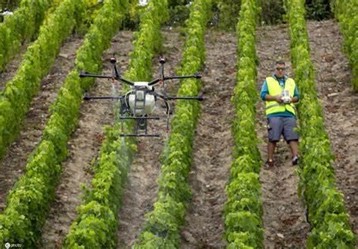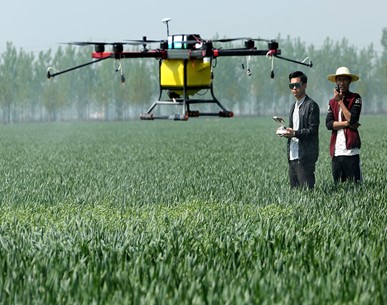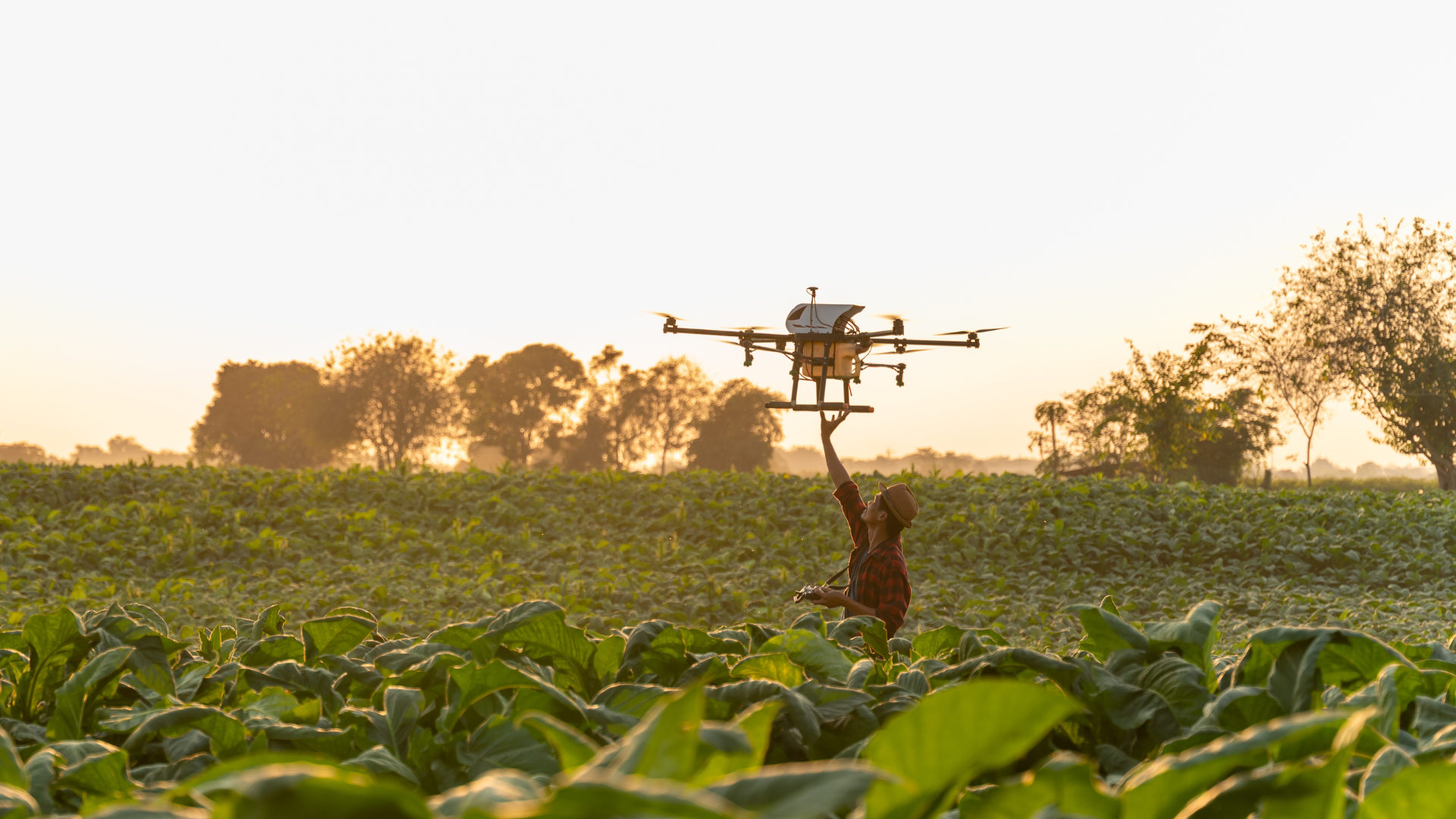Is Precision Agriculture ready for pest management?
Vegetable farming is an age-old practice of growing food plants for human consumption. It is a fundamental and essential part of agriculture, which involves growing various plants, including tomatoes, cucumbers, lettuce, carrots, and many other vegetables. This process often occurs in gardens, farms, or even urban spaces, where people use their knowledge of nature and the environment to produce fresh and nutritious vegetables.
The art of vegetable cultivation combines science, experience, and a deep connection with the land. Farmers and gardeners select their crops carefully, considering factors such as soil type, climate, and available resources. They then prepare the soil, sow or plant the seedlings, and provide the care the plants need to thrive. This care includes watering, protection against weeds, insects, and diseases, and ensuring adequate sunlight and nutrients.
The rewards of vegetable farming are abundant. It not only provides individuals and communities with a source of fresh, healthy food but also promotes sustainability by reducing the need for long-distance food transport. Additionally, it provides a sense of fulfillment and a closer connection to the natural world as people witness the fruits of their labor grow from tiny seeds to bountiful harvests.
In this introduction, we’ll explore the key aspects of growing vegetables, from choosing the right plants to understanding the science behind their growth.

How can small-scale vegetable farmers increase yields effectively?
Let’s Learn how small-scale vegetable farmers can effectively increase their yields in simple:
Healthy Soil: Good soil is like a comfortable home for plants. Farmers should check their soil and add materials like compost to make it rich and full of nutrients. Healthy soil means happy plants.
Proper Plant Placement: Just as people need their personal space, so do plants need personal space. So, when you plant, be careful not to plant too close. Give your plants enough space to grow and expand comfortably.
Water wisely: Vegetables need water, but too much can harm them. Farmers should carefully avoid watering during the hottest part of the day to keep plants hydrated without wasting water.
Fertilize with care: When feeding your plants, choose suitable fertilizers. Balanced fertilizers provide your vegetables with the nutrients they need to thrive. However, one should not give too much. Because too much fertilizer can harm your crops. For best results, follow the directions on the fertilizer package.
Pests and Disease Control: Just as people can get sick or have unwelcome guests (bugs), plants can face the same challenges. Farmers need to keep a close eye on these issues and take action to ensure the health of their plants.
Timing your planting: Make sure to plant your vegetables when the time is right for your region. Note your local climate and the length of your growing season. Another trick is to grow your vegetables at different times to ensure a constant supply of crops throughout the season.
Choose Good seeds: Choosing the best seeds is like choosing the best players for a sports team. Farmers should get good quality seeds. Some seeds are better grown in different places.
The Magic of Mulch: Mulch is like a comfort blanket for the soil. It keeps it warm and moist and prevents weeds from growing. Farmers can use things like straw or wood chips for mulch.
Handle Your Veggies Carefully: When you’re choosing your vegetables, treat them gently. Rough handling can harm them. Once you’ve harvested them, store your produce in a cool, dry place to keep it fresh for longer.
Keep learning: Farming is a constant learning journey. Attend workshops, read about farming, and talk to experienced farmers. Also, keep a record of what you do on your farm. This helps you learn from your successes and mistakes and make better decisions in the future.
By following these simple steps and continually improving their farming practices, small-scale vegetable farmers can grow healthier, more abundant crops, making their efforts more rewarding and productive.
How can farmers conserve water in vegetable cultivation?
Water is precious, and crucial to growing vegetables, but we must use it wisely, especially in regions where water is scarce. Farmers can adopt various strategies to conserve water while cultivating vegetables.
One of the most effective ways to conserve water is by using efficient irrigation methods. Instead of conventional sprinklers that spray water over a large area, farmers can opt for drip irrigation. These systems deliver water directly to the base of the plant, ensuring it reaches the roots where it is needed most. This not only reduces water wastage but also helps the plants to thrive. Consider watering the plant using a straw instead of a hose that waters everything around it.
Mulching is an intelligent strategy. Carefully place safety nets of materials such as straw or wood chips around your plants. This “blanket” serves a dual purpose: it keeps the soil moist for more extended and acts as a barrier against weed growth. Therefore, consider wrapping your soil in a protective cover to prevent moisture from quickly disappearing.
Timing of watering is also essential. Watering your plants early in the morning or late in the evening when the weather is cool helps prevent the water from evaporating quickly due to the sun’s heat.
Farmers can also collect rainwater in large barrels during the rainy season. When the dry season comes, they can use this stored rainwater to irrigate their crops. It’s like saving rainwater for a sunny day when the plants need it.
By adopting these water-saving methods, farmers can grow their vegetables efficiently and contribute to water conservation. Water is a valuable resource supporting the environment and farm productivity.
How can farmers improve crop quality and nutrition?
Improving crop quality and nutrition is critical to people’s health and farmers’ success. Farmers can use several methods to improve crop quality and nutrition.
Farmers should prioritize the selection of high-quality seeds. As with any endeavor, it’s important to start with the best material. Choosing seeds known for their vigorous growth, resistance to diseases, and rich nutrients can significantly impact. These seeds can produce healthy and strong crops.
Soil health is another important factor in crop quality and nutrition. Farmers can test their soil regularly to understand the nutrient levels and composition of their soil. Based on these results, they can amend the soil with essential nutrients, such as organic matter such as compost. Healthy soil ensures that crops get the right nutrients, making them more nutritious.
Proper irrigation techniques are essential for both the health and quality of crops. Just like people, plants need the right amount of water to thrive. Overwatering or underwatering can lead to problems. Farmers should use efficient irrigation methods to provide a consistent and appropriate water supply. This ensures that the plants receive the necessary moisture without being drowned or stressed from lack of water.
After harvesting, as with delicate items, it is essential to handle the crop with care. Rough treatment may damage the product. Farmers should store their harvest in a clean, dry place and avoid damage during storage and transportation.
Incorporating these methods can help farmers not only grow healthier and more nutritious crops, but also contribute to overall food quality and safety for the people who use them. It’s a win-win situation that benefits everyone involved in the farming process.
What’s the latest in pest control for vegetables?
The world of pest control for vegetables is constantly evolving to become more effective and environmentally friendly. Here’s a glimpse of what’s happening in the world of
pest control for vegetables:
Biological control: Nowadays, farmers are introducing natural predators such as ladybugs, parasitic wasps, and nematodes to control pest populations. It’s like having your eco-friendly pest control team.
Beneficial microbes: Farmers harness the power of helpful microbes to protect their crops; these little companions can fend off pests and promote plant growth, much like having a microscopic bodyguard for your vegetables.
Organic and Natural Solutions: Farmers are increasingly turning to biological and natural pest control methods. This includes using plant extracts, essential oils and other non-toxic substances to repel insects. It’s like having a plant-scented force field that keeps critters away.
How is technology changing in vegetable farming?
Technology is bringing exciting changes to the world of vegetable farming, making it more efficient and sustainable. Here’s how we’re changing the way we grow our vegetables:
Farmers have adopted certain farming techniques, like having GPS for their fields. They use GPS technology to precisely plant seeds, apply fertilizer and irrigate their crops. This approach eliminates resource wastage, ensuring your vegetables get the right amount of everything they need.
Drones and satellites act as farmer’s watchful eyes in the sky. They can survey fields and provide essential insights into crop health, so farmers can spot problems early and respond. It’s like having a bird’s-eye view of your entire farm.
A smart sensor is its equivalent to a sensing farm. They can sense factors such as soil moisture, temperature and signs of pests. Farmers use these sensors to make instant selections, ensuring their crops are in the best shape. It’s almost like your farm gets the ability to communicate its needs directly to you.
Scientists are developing crops that are more resistant and require fewer pesticides. These genetically modified vegetables can resist pests and harsh weather, helping farmers grow more with fewer resources. It’s like giving your plants a superhero gene to save them.
Technology is revolutionizing vegetable farming, making it more sustainable, efficient, and productive. It’s like giving farmers superpowers to feed our growing world while caring for the environment.
Conclusion
Vegetable farming is the traditional practice of growing food plants for human consumption, often in gardens, fields, or urban spaces. It includes crop selection, land preparation, sowing seeds, and providing necessary care. Small-scale farmers can increase yields by using healthy soil, proper plant placement, judicious watering, choosing balanced fertilizers, controlling pests and diseases, timing of planting, choosing good seeds, using mulch, and gentle handling of vegetables. This practice promotes sustainability, provides a sense of fulfillment, and reduces the need for long-distance food transport.
Farming is a constant learning journey, and small-scale vegetable farmers can learn from their successes and mistakes to improve their practices. Water conservation is important for vegetable cultivation, and farmers can use effective irrigation methods, mulching, watering timing, and rainwater harvesting for irrigation. Improving crop quality and nutrition involves selecting high-quality seeds, testing soil for nutrient levels, using proper irrigation techniques, and handling crops carefully. By adopting these strategies, farmers can grow healthier, more abundant crops, contribute to water conservation, and improve their farm productivity.
Technology is revolutionizing vegetable farming by introducing biological control, beneficial microbes, and organic and natural solutions. These practices help farmers grow healthier, more nutritious crops and contribute to overall food quality and safety. Farmers also use GPS technology for precise planting, drones to monitor crop health, smart sensors for instant crop selection, and genetically modified crops for resistance and fewer pesticides.











































































